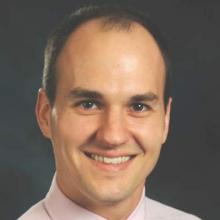Doctors talk more than they listen, especially when discussing end-of-life care with families, a recent study in Pediatrics suggests. Researchers from the University of Amsterdam followed 27 physicians and 37 parents as they navigated the difficult waters of end-of-life decision making for their children. By analyzing recorded conversations, they found that physicians spoke 67% of the time, while parents spoke only 30% of the time and nurses 3%. Additionally, they found that physicians “focused primarily on providing medical information, explaining the preferred course of action, and informing parents about the decision being reached by the team”(Pediatrics 2015;135:e465-76). Although parents were present during discussions, they were not routinely part of the decision-making process.
While this study was performed in Amsterdam and may not perfectly reflect the cultural norms of the United States, the results still should give us pause and raise important questions. Do we spend too much time talking, and too little listening? What role do parents have in decision making in our own country? Although we all participate in family-centered rounds, how often are the parents present but not involved? Do we pause often enough to explain in plain English what we had just rattled off in medicalese?
The challenge of listening is that it takes time and energy. With many other patients to care for and a long list of notes and orders to be entered, spending more time listening to families can seem exhausting and less important. However, this is the crux of the physician-patient relationship, and this is what makes the role of physician so important. When sick children and their families are at the most vulnerable point in their lives, it is our presence as empathizing, listening humans that matters most. Treating the disease with the correct medications is important but insufficient. And the sicker the patient, the higher the stakes.
As medical trainees, we often can feel powerless in these high-intensity situations. Yet, we can play a key role by advocating on behalf of our patients and their families, by giving them a voice. We can do this only by taking time to ask questions and to listen. After spending a few more minutes with these families in need, we can better understand their hopes and values, and we can identify the ways in which our goals align. As our medical teams are zipping through family-centered-rounds, we can advocate for families by raising their questions and concerns, ensuring that their voices are heard. By taking time to listen, we can provide that pivotal bridge of understanding between the medical team and the family.
Dr. Sisk is a pediatrics resident at St. Louis Children’s Hospital. E-mail him at pdnews@frontlinemedcom.com.


